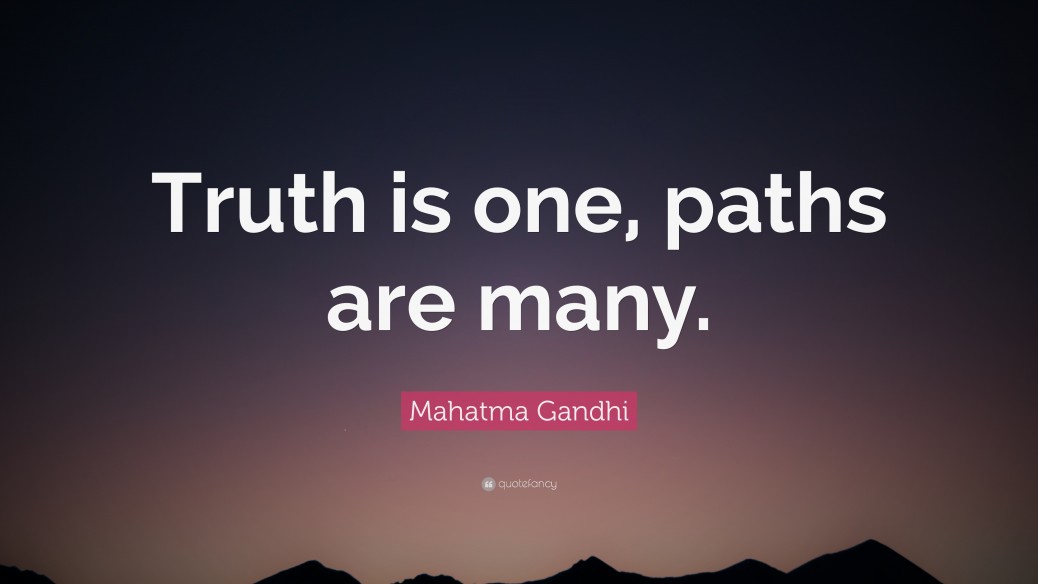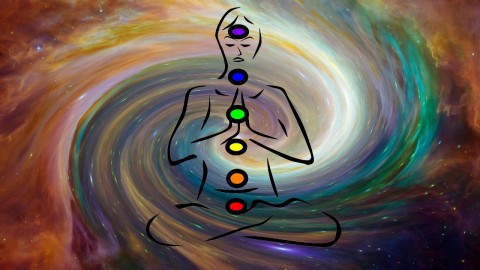One seeker asked Osho – IF LAO TZU AND PATANJALI MET TODAY COULD THEY RECONCILE THEIR TEACHINGS ABOUT SPIRITUAL GROWTH? IF IN THEIR BUDDHAHOOD NO DISTINCTION EXISTS BETWEEN THEM WHY ARE THEIR TEACHINGS SO DIFFERENT. AND WHY HAS THERE NOT BEEN A MASTER BEFORE YOU IN ALL THE AGES WHO HAS COMBINED AND SYNTHESIZED ALL THE TEACHINGS OF PAST BUDDHAS?
Osho’s answer – The question is in three steps. First step: “If Lao Tzu and Patanjali met today could they reconcile their teachings about spiritual growth?”
If they meet they will not find that there is anything to be reconciled – everything is reconciled. They will embrace each other, sit holding hands, but won’t talk. They may already be doing it somewhere in heaven; because everything is reconciled. The problem is for you, not for them. The problem is for those who are on the path, not for those who have reached the goal, because on the goal everything is reconciled. The goal is one; paths are many. Travelling on a path you feel that somebody else is travelling on another path, but reaching to the goal you suddenly become aware that everybody reaches the same goal.
The truth is one.
So there is no question of any reconciliation. There is no need for any synthesis; everything is absolutely synthesized. They may have a good laugh or a cup of tea, but there is not going to be any philosophical discussion – that much is sure.
They may play cards or something else nonsensical, but no rational discussion is going to be there. I always think that in heaven, where liberated people are, what will they be doing? They must be playing cards, chess – nonsense things.
What?… What will you do there? Playing those are not games there because a game becomes serious. A play is just a play. You enjoy it, just like small children.
The second part of the question: “If in their Buddhahood no distinction exists between them, why are their teachings so different?”
The teachings are different but the teachers are not. There exists only one teacher.
Teachings are different because students are different, disciples are different.
Patanjali was talking to a different category of people – you have to understand this. Lao Tzu was talking to a different quality of people.
In India even mysticism is a very, very logical phenomenon. India is a very, very thinking country: it thinks about, “unthinkables” also; it theorizes about that which cannot be theorized; it defines that which cannot be defined. The whole of Indian scriptures are full of…. They will go on saying, “God cannot be defined” – and they will define. And they will say, “Truth is indefinable” – and in saying this they have defined it; they have shown one quality, of indefinable-ness. They go on saying, “Nothing can be said about God”and immediately they will say, “He is within you” or “He created all” or “He is all.”
India is a contemplative country. It loves thinking. It loves thinking so much that it has become almost impractical. People loved thinking, and they thought and thought and they became impractical, almost impractical. India has not produced any scientific technology. If the mind is practical the mind is interested to do something. India is an impractically thinking country; it goes on thinking. The whole business of life seems to be to think.
Lab Tzu’s China was totally different, and the disciples that Lao Tzu had gathered around him…. And this was not a new tradition which Lao Tzu was propagating. It had existed for at least five thousand years before Lao Tzu. It was very, very ancient. China in those days was a non thinking country: less contemplative and more meditative. It was not concerned about thinking, theorizing, philosophizing. China has not given beautiful philosophies to the world – India has given. Of almost all the philosophies that you can come across anywhere, you will always find a seed in India. Sometimes it becomes a surprising phenomenon.
You cannot conceive any philosophy in the world which does not have a parallel in India. Everything that has been thought anywhere else has already been thought in India. In thinking you cannot compete with Indians. Not of today’s Indians – I’m not talking about today’s Indians. They are just a ruin of a past glory. In fact, India no longer exists. The India of Buddha, the India of Patanjali, the India of the Upanishads and Vedas, does not exist at all. They thought and thought and they created magnificent theories about the world, but they were not empirical, they were not practical.
China is totally different. They were not interested in contemplating, about theories; rather, they were interested in living. They were interested in being, more than in thinking. And Lao Tzu is the pinnacle.
When Bodhidharma went to China these two currents; met – the Lao-Tzu’s Tzian meditation and Buddha’s contemplation. They met, and one of the most beautiful things was born, that is Zen. It has the quality of Buddha and it has the quality of Lao Tzu. It is neither Buddhist nor Lao-ist; it is both. It is the greatest crossbreeding that has ever happened on the earth.
Patanjali is very logical, logical in the world of the mysterious. Step by step he moves, analytical. He could have satisfied any Einstein, any Wittgenstein or Russell. Lao Tzu could not have satisfied Einstein, he could not have satisfied Russell or Wittgenstein, because he would have looked absurd. He was talking patent nonsense. But Patanjali would have satisfied any scientific mind, howsoever great, because he talked so scientifically and he moves so gradually, step by step, showing every link.
The teachings are different because Patanjali was born in India, was talking to Indians – a very contemplative country. Lao Tzu was talking to mystics, a very meditative country in those days. Both were talking to different people; different types of disciples gathered around them. Teaching differs because teaching is for the taught. Teachers don’t differ. If you leave Patanjali alone and Lao Tzu alone they will be just the same, but if Patanjali is with his students and Lao Tzu with his disciples, they will be different. If Patanjali and Lao Tzu are silent, they are the same, but if they talk to somebody they will be different. A teacher has to teach according to the disciple – his understanding, his training, his aptitude, his intelligence, his conditioning. He has to bring his teaching to the level of the student; otherwise he is not a teacher. That’s why teachings differ.
And one more thing: there are two types of people. One, who is very, very courageous and crazy, takes the jump; in fact, dangerously courageous, irrational.
In a certain mood they can take the jump; they don’t bother about the consequence. And then there is another type of person – hesitating, will make every certainty about what is going to happen, about the consequence and the result; only then will he move. Patanjali has appeal to those who would like to be convinced before the jump. Lao Tzu is for those who don’t bother for any conviction; they are ready to jump. For these two different types two different teachings exist, but the teachers are the same.
The third part: “And why has there not been a Master before you in all the ages who has combined and synthesized all the teachings of past Buddhas?”
There was no need; now the need exists. The world was, in the past, divided. The world was very, very big. People remained confined in their own countries.
Teachings were not meeting: a Mohammedan lived like a Mohammedan, never aware of what the Vedas say; a Hindu lived like a Hindu, never knowing really what Zarathustra has taught. But now the world has become very small, a global village; the world has shrunken tremendously. Now everybody knows everything else: a Christian is not just a Christian – he knows what the Geeta says, he knows what the Koran says. Now there is confusion; because the Koran says something, the Geeta says something, the Bible says something else. Now everybody is aware of everything else that is around. People go on moving from one country to another country, from one teacher to another teacher. There are many here who have been with many teachers; now they are a mess.
A great synthesis is needed. In the future, religions will not be able to exist separately, no. That will become impossible. Osho is just creating the base for a new temple – which will be a church also, a mosque, a gurdwara. He is creating a base for the religious man who will neither be a Christian nor a Hindu nor a Mohammedan, just religious. Now the time is ripe for a great synthesis; it was never so.
Buddha was talking to people who were not Mohammedans. Jesus talked to people who were Jews; Jesus talks as if there exists nobody else other than Jews.
He was talking to Jews, but now to whom am I talking? Here are Jews, Christians, Mohammedans, Jains, Buddhists, Sikhs – all are here. You here are a miniature world. Soon, when people will understand each other more, the differences will be lost. When a Christian will understand the Geeta really, the distinction between the Geeta and the Bible will be lost; they will become one whole.
That’s why Osho is trying to talk about all the systems and all the Masters, so a base can be created. On that base will stand the temple of the future, the religious man of the future. He will not be a Christian. In fact in the future if somebody is a Christian he will look a little outdated, and if somebody is a Hindu he will look a little stupid, and if somebody still insists that he is a Mohammedan he will not be a contemporary – a dead man. The future is for religion – in which all religions will mingle and meet and dissolve.
That’s why it was not needed in the past. Now it is needed. Now man is just around one of the greatest turning points. It always happens after twenty-five centuries that humanity takes a turn; the circle is complete. The human consciousness had taken one turn at the time of Buddha. Now twenty-five centuries are over and the turn is just in the near future. Those who are alert will be benefited most by that turn because they can use that tide. They can ride on that tide; they can reach home easily. When the sea is on the ebb it is difficult to reach the shore. When the sea is on tide the waves are moving towards the shore on their own – you just leave your boat with them and they carry you.
Just within twenty-five years one of the most significant points of history will be reached and human consciousness will take a turn. If you are ready and meditative at that moment, much is possible which will not be possible again for twenty-five centuries. At Patanjali’s time there was a turn; Patanjali existed twenty-five centuries before Buddha. This has always been so.
It is just like the earth takes one round of the sun in a certain period of time: the whole human consciousness moves in a circle and comes to the original source in a certain time, that is twenty-five centuries. That critical moment is near. It can become very radical. If in your mind you are synthesized, you will be able to use that turn. If you are not synthesized – you remain a Mohammedan, you remain a Christian – you remain out of date, you remain of the past. You are not here; you are not available to the present. To make you available to the present, to make you capable of understanding what is going to happen soon, that’s what this whole synthesis is all about.
Tags: Patanjali The Truth Is One










